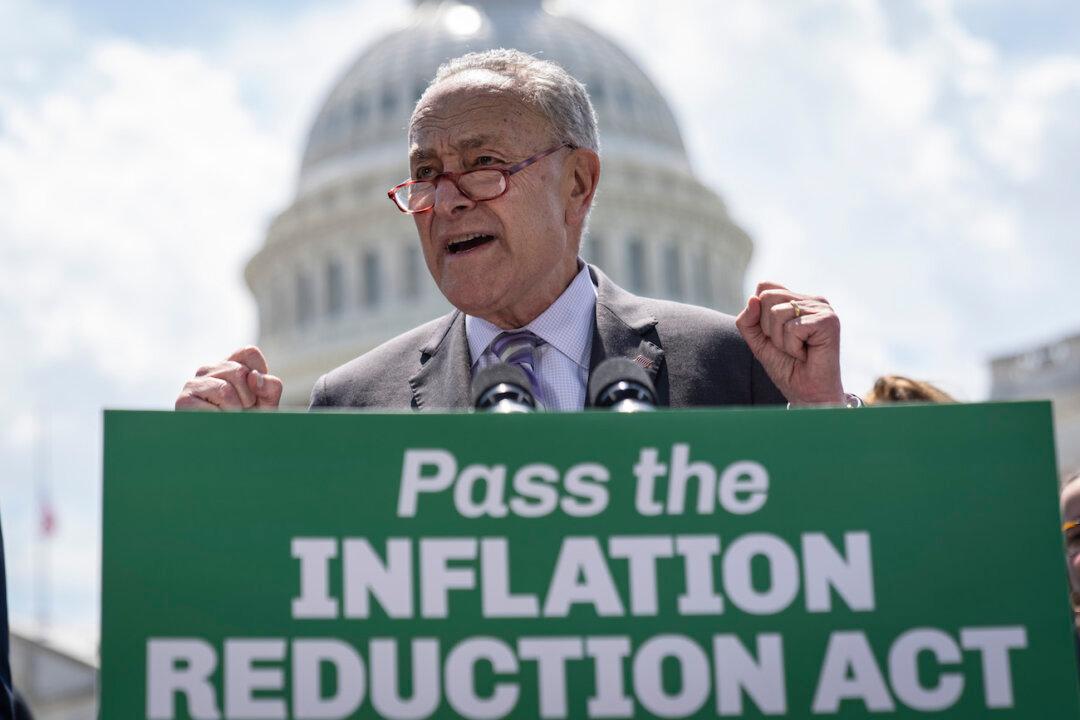While Democrats insist that the Inflation Reduction Act won’t boost taxes on people making less than $400,000 a year, collateral effects from the legislation will cause workers and small businesses alike to pay more, according to Preston Brashers, a senior tax policy analyst at the right-leaning Heritage Foundation.
The measure, hammered out as a compromise agreement between moderate Sen. Joe Manchin (D-W.Va.) and Senate Majority Leader Chuck Schumer (D-N.Y.), serves to fulfill a series of broad Democratic aspirations: increasing federal revenue by closing so-called tax loopholes, enacting climate change policies, expanding the Affordable Care Act, and reducing prescription drug prices.





